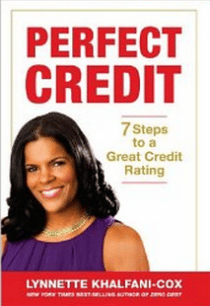Question: “I’m trying to increase my credit score ASAP. I was told that if I get added as an authorized user to a credit card that has good history and a low balance, that can increase my score. Is this true?”
Answer: The answer is, yes, it is true. It’s a technique called piggybacking that allows you to benefit, as an authorized user, from someone else’s positive credit history. The credit‑scoring company that is most popular, FICO, which is your FICO credit score ‑‑ FICO stands for Fair Isaac Corporation.
Piggybacking Explained
Fair Isaac Corporation, a couple years ago, had talked about eliminating authorized‑user accounts from their computer models when they generate your credit score. In other words, they said, “If this is an authorized‑user account, we won’t tabulate that, we won’t use that, in terms of creating someone’s credit score.” But there was such an uproar over that and there was such a backlash about it that they dismissed that idea. So you can, in fact, still use an authorized‑user account as a way to help establish a good credit history.
If you’re a young person and you’re trying to get that credit score up for a particular reason, you should know that part of the new Credit Card Reform Act that has been rolled out in 2010 has made it tougher for younger people to get credit in their own name.
And really, that’s designed to protect people who might not be as financially literate. So, in order to get credit cards in the future, what you have to do is to prove that you can repay a loan, the credit that might be established to you, the credit card itself being the loan, or you have to have a cosigner. And so the cosigner is just another way, really, of you being intertwined, so to speak, with someone else’s credit account, just like you might be as an authorized user.
About Credit Rescoring
Some people are trying to increase their credit scores, of course, ASAP in order to purchase a home. Now if that’s the case for you, then certainly, if you have any erroneous information in your credit files and you need to get your credit score boosted ASAP, you might want to look into something called credit rescoring.
Here’s what it is, in a nutshell. Credit rescoring is a form of rapidly increasing your credit score by contacting the bureaus via a mortgage lender to say, “Look, there’s negative information in my credit files that is erroneous or outdated.”
If you can have a mortgage lender, while you’re in the process of applying for a home loan, to contact one of the credit bureaus for you via a rapid rescoring request, typically what happens is that negative information that is erroneous will be deleted from your credit files very, very quickly. I’m talking about 48 hours on average.
is that negative information that is erroneous will be deleted from your credit files very, very quickly. I’m talking about 48 hours on average.
So that negative information being removed from your credit files can often do just the trick you’re looking for in terms of boosting that credit score. And believe it or not, lots of people have mistakes in their credit reports.
The Consumer Federation of America says that about 70 percent of all credit files ‑
And there’s more than 200 million credit files out there for American consumers ‑‑ they say that more than 70 percent of all those files have mistakes. And you definitely don’t want those mistakes to cost you money, especially if you’re trying to get a loan or credit of any kind.
So good luck in getting those credit scores up, and do check out a copy of my latest book, which can tell you how to boost your credit rating. The book is called “Perfect Credit: Seven Steps to a Great Credit Rating.” I hope you check it out.








